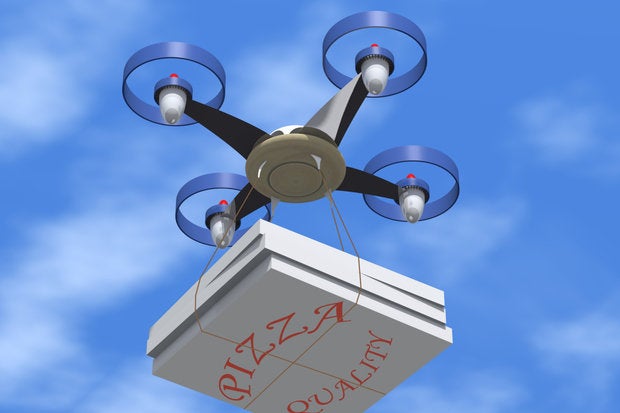Physical Address
304 North Cardinal St.
Dorchester Center, MA 02124
Physical Address
304 North Cardinal St.
Dorchester Center, MA 02124

Mobile food delivery apps have become increasingly popular in recent years, offering convenience and efficiency to customers. However, the issue of driver identification has emerged as a significant concern within the industry. Several causes contribute to this dilemma, highlighting the challenges faced by food delivery services in ensuring the authenticity and safety of their drivers.
One of the primary causes of the identification dilemma is the absence of comprehensive background checks for delivery drivers. While some food delivery platforms claim to conduct background checks, the effectiveness and thoroughness of these checks are questionable. Insufficient screening processes may allow individuals with malicious intent or a criminal background to become drivers, posing potential risks to customers.
The rise of gig economy apps has created opportunities for individuals to engage in flexible work arrangements, including food delivery services. However, this has also led to the exploitation of these platforms. Some gig-work brokerages sell or lease accounts to individuals, bypassing the necessary verification processes. As a result, unknown and unverified persons may be delivering food, compromising the safety and trust of customers.
Another contributing factor to the identification dilemma is the practice of drivers sharing their accounts with friends or family members. While this may seem harmless, it violates the policies of food delivery services. When multiple individuals use the same account, it becomes challenging to ensure that the person completing the delivery is the authorized driver. This loophole undermines the authentication efforts implemented by the platforms.
Food delivery services have struggled to implement effective verification mechanisms to address the identification dilemma. While some platforms have introduced periodic selfie checks or facial recognition technology, these measures may not be foolproof. The frequency and reliability of these verifications remain uncertain, allowing drivers to potentially bypass the system and continue delivering without proper authentication.
The lack of proactive measures and enforcement by food delivery platforms exacerbates the identification dilemma. While some platforms conduct background checks, they often fail to take immediate action against drivers who engage in fraudulent activities or violate policies. Without strict consequences for identity swapping or account sharing, drivers may continue to exploit the system, putting customers at risk.
The rapid growth of the food delivery industry has created a demand for a large number of drivers. To meet this demand, platforms may lower their standards or loosen their verification processes, inadvertently compromising driver identification. The pressure to maintain a sufficient driver pool can lead to compromises in safety and authentication measures.
These causes contribute to the food delivery driver identification dilemma, highlighting the complex challenges faced by food delivery services in ensuring the authenticity and safety of their drivers. Addressing these issues requires a comprehensive approach that includes rigorous background checks, improved verification mechanisms, and stricter enforcement by the platforms.
The identification dilemma faced by food delivery services due to the lack of proper driver authentication has several significant effects on both customers and the industry as a whole. These effects highlight the importance of addressing the issue and implementing robust solutions to ensure the safety and trustworthiness of food delivery services.
One of the most concerning effects of the identification dilemma is the compromised safety of customers. When unknown and unverified individuals are delivering food, customers are at risk of potential harm or criminal activities. Without proper authentication, customers cannot be certain about the identity and background of the person entering their premises, leading to a loss of trust in the service.
The lack of stringent driver identification measures opens the door for fraudulent activities and exploitation within the food delivery industry. Criminal elements may take advantage of the loopholes in the system to scout locations for robberies or break-ins. Additionally, the exploitation of gig-work brokerages and account sharing practices can lead to the mistreatment and exploitation of drivers themselves.
The identification dilemma undermines the trust that customers place in food delivery services. When customers realize that the platforms they rely on for their meals cannot guarantee the authenticity of their drivers, it erodes their confidence in the overall service. This loss of trust can result in decreased usage of food delivery apps and a negative impact on the industry’s reputation.
The inability of food delivery platforms to effectively address the identification dilemma can lead to significant reputation damage. Negative incidents involving unverified or fraudulent drivers can generate negative publicity and media attention. This can tarnish the reputation of the platforms, making it difficult to attract and retain both customers and drivers.
The identification dilemma may attract regulatory scrutiny and potential legal consequences for food delivery platforms. Governments and regulatory bodies may intervene to enforce stricter regulations and demand greater accountability from these platforms. Failure to address the identification issue adequately could result in fines, penalties, or even legal action against the platforms.
The identification dilemma highlights the urgent need for enhanced driver verification mechanisms and stricter enforcement by food delivery platforms. To mitigate the effects mentioned above, platforms must invest in robust background checks, implement reliable verification technologies, and enforce strict policies against account sharing and fraudulent activities. By doing so, they can rebuild customer trust and ensure the safety and authenticity of their services.
The effects of the identification dilemma in the food delivery industry are far-reaching, impacting customer safety, trust, and the reputation of platforms. Recognizing these effects and taking proactive measures to address the issue is crucial for the long-term success and sustainability of the industry.
If you’re wondering where the article came from!
#